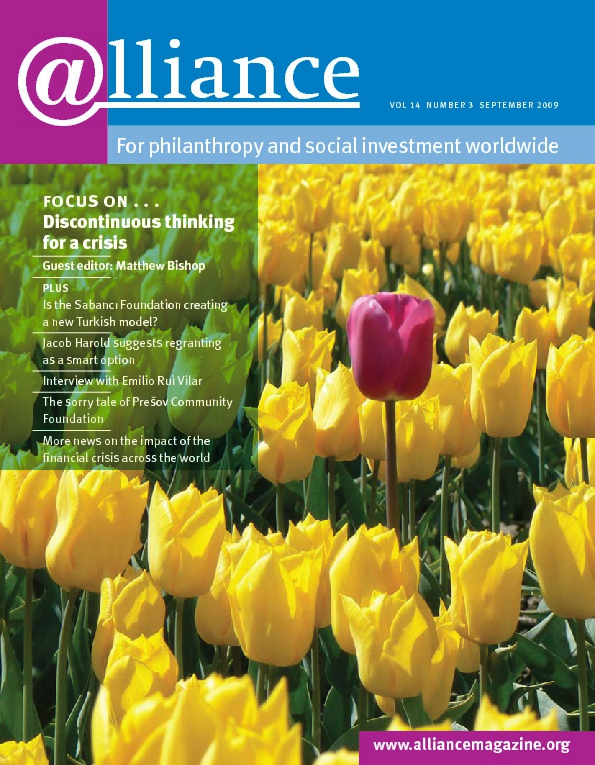Environmental, economic and social crisis threatens the future of humankind and, at the moment, society is searching new ways to cope with such challenges. A promising future will depend on the foundation of a new development cycle based on sound financial management, renewable energy, clean technology, preservation of biodiversity, and also the reconciliation of economic growth with more equitable income distribution. To build up such a cycle, well-prepared, talented professionals, especially technicians and engineers, will be needed and these must come from among young people. However, this is not just a matter of vocational training. All sectors must collaborate in preparing young professionals whose attitudes and values encompass sustainable development in all its forms.
The opportunity
Faced with economic slowdown, countries should improve economic and social infrastructure, and create favourable conditions for a resumption of development. Proactive responses to local demand include sanitation and housing for the majority. In Brazil alone, treated water and sewage services should be expanded to provide access to more than 45 million inhabitants. More than 20 million houses need to be built to address the chronic deficit. The provision of such infrastructure – which involves all dimensions of human environment: quality materials, safe drinking water, clean and renewable energy – is a major opportunity to create jobs and sustainable economic growth, which in turn would improve the economic, business, social, environmental and political landscapes.
The challenge
Almost half of the world’s population is under 25 and a young society should, in theory, hold out more promise to bridge the skills gap. In Latin America alone, there are more than 70 million between the ages of 16 and 24. However, preparing the next generations for a new paradigm of development remains a major challenge. Brighter students are searching for a life which combines useful skills and inspiring values which technical careers seem to ignore. Up to the present crisis, business and academia have been focusing mostly on knowledge and less on skills and values, keeping at a distance the most idealistic.
Calling all sectors …
To prepare and retain new and appropriate talent, employers must provide incentives to young professionals, treating them fairly in terms of compensation and giving them opportunities to learn and to shape a value system appropriate to a new era. Engineering and technical professions, for example, should be reinvented as exciting careers that offer outstanding opportunities to be part of new discoveries, work in a stimulating environment and engage in lifelong learning. At the same time, academic curricula must offer cutting-edge courses related to contemporary issues and challenges that entice and retain technical and engineering students.
Teachers should spend time in the private sector and civil society organizations. Business leaders and recruiters should discover the world of academia and civil society. Such interaction would expose teachers and recruiters to an external world in deep transformation. The following might help to bridge values and skills gaps:
- promoting crisis management skills through societal values-driven problem solving;
- designing partnerships focused on cultural diversity and innovation;
- rewarding professionals engaged in technical developments related to the new development cycle;
- encouraging collaborative design of curricula by academia, with active business and civil society engagement, rooted in common visions of the future and the public good.
In conclusion, the fundamentals of a new development cycle shall be based not only on a solid international financial architecture but also on sound educational opportunities, clean technologies, sustainable use of natural resources and an equitable socioeconomic regime. As I suggest above, no one sector can do this, it must involve all of them. Philanthropic institutions, with their convening power and their ability to pilot innovation, could work with government, business, civil society and academia to help equip young people with the appropriate skills and values to support a new dawn for mankind.
Jacques Marcovitch is Professor, University of São Paulo (Brazil), and Global Agenda Council member on the Future of Latin America, World Economic Forum (Geneva). Email jmarcovi@usp.br





Comments (0)